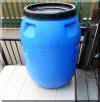| Muby Chemicals and a few more manufacturing units are in Mubychem Group, the pioneer manufacturer of Zinc Chloride, Calcium Chloride, Potassium Chloride, Sodium Acetate, Sodium Thiosulphate, Ammonium Chloride, & Pharmaceutical Chemicals in India since 1976. Currently we have manufacturing facilities spread across Western India. No other vendor in the world knows Zinc Chloride any better than we do. We are exporters to all the countries across the globe. |
| (FDA) GMP GLP Approved, ISO-9001 Certificate, "REACH" registered, ISO-22000, Kosher Certified, Halal Certified, HACCP |
Zinc Chloride Manufacturers - Uses
CAS Number 7646-85-7
Synonyms: Zinc Dichloride, Zinc Butter; CAS No.: 7646-85-7
Molecular Weight: 136.30; Chemical Formula: ZnCl2
Zinc Chloride Battery Grade Anhydrous Solution BP USP IP ACS AR Analytical Reagent Manufacturers
Dry Cell or Batteries: Zinc Chloride is commonly used in dry cell batteries as an electrolyte where it also acts as a moisture absorbent and corrosion inhibitor. Zinc Chloride is an excellent water soluble Zinc source for uses compatible with chlorides. Chloride compounds can conduct electricity when fused or dissolved in water. Chloride materials can be decomposed by electrolysis to chlorine gas and the metal. They are formed through various chlorination processes whereby at least one chlorine anion (Cl-) is covalently bonded to the relevant metal or cation. the item is generally immediately available in most volumes and high purity.
A zinc chloride battery is a heavy duty variation of a zinc carbon battery. It is used in applications that require moderate to heavy current drains. Zinc chloride batteries have better voltage discharge per time characteristics and better low temperature performance than carbon zinc batteries. They batteries are used in radios, flashlights, lanterns, fluorescent lanterns, motor driven devices, portable audio equipments, communications equipments, electronic games, calculators, and remote control transmitters.
Electroplating : Today, there are three primary types of acid zinc plating baths: straight ammonium chloride, straight potassium chloride and mixed ammonium chloride/potassium chloride. Acid zinc plating systems have several advantages over alkaline cyanide and alkaline non-cyanide zinc plating systems except that in acid zinc plating, the electrolyte is extremely corrosive.
Ammonium chloride zinc plating. The ammonium chloride bath is the most forgiving of the three major types of acid zinc plating because of its wide operating parameters. The primary drawback of this system is the high level of ammonia, which can cause problems in wastewater treatment. Ammonia acts as a chelator, and if the rinse waters are not segregated from other waste streams, removal of metals to acceptable levels using standard water treatment practices can be difficult and expensive. Ammonia is also regulated in many communities.
Potassium chloride zinc plating. Potassium chloride zinc plating solutions are attractive because they contain no ammonia. The disadvantages of this system are a greater tendency to burn on extreme edges and higher operating costs. The potassium bath also requires the use of relatively expensive boric acid to buffer the solution and prevent burning in the high-current-density areas, functions performed by the ammonium chloride in the other systems.
Mixed ammonium chloride/potassium chloride zinc plating. This bath combines the best of the ammonia and ammonia-free baths. Because potassium chloride is less expensive than ammonium chloride, the maintenance costs of the mixed bath are lower than the ammonia bath, and it does not require boric acid. The ammonia levels in the rinse waters are low enough that it does not significantly interfere with wastewater treatment, even if plating nickel and copper in the same plant with mixed waste streams. If local regulations restrict the level of ammonia discharged, special waste treatment equipment will be required, and the non-ammonia bath is most likely the best choice. For procuring NH4Cl, KCl & ZnCl2 click here.
Galvanizing, Soldering and Tinning Fluxes: Zinc Chloride is used in fluxes for galvanizing, soldering and tinning. Its ability to remove oxides and salts from metal surfaces insures good metal to metal bonding. It has the ability to attack metal oxides (MO) to give derivatives of the formula MZnOCl2. This reaction is relevant to the utility of Zinc Chloride as a flux for soldering - it dissolves oxide coatings exposing the clean metal surface. Typically this flux was prepared by dissolving zinc foil in dilute hydrochloric acid until the liquid ceased to evolve hydrogen; for this reason, such flux was once known as killed spirits or "Marela".
Agriculture: Zinc Chloride is very rarely used in agriculture. it may be reacted with chelating agents to form solutions of zinc that are biologically available to plants and animals. It's the Chelate manufacturing that consumes Zinc Chloride.
Petroleum: It is an excellent emulsion breaker and is used to separate oil from water. It is also an effective packer fluid in oil and gas wells due to its high specific gravity. However its a little more costly than the other low specific gravity fluids used in the process.
Water Treatment: Zinc Chloride is used in specialty corrosion inhibitors in cooling towers, potable water, and in gas and oil wells.
Resins: It is used in Ion - Exchange resins production.
Paints: It is used in for the production of lithopone and as pigment for zinc chromate.
Rubber: Zinc Chloride is used as
accelerator in the vulcanizing process of rubber.
Glue, wood working:
It is used in for the
preservation of glue, and for the impregnation of timber.
Printing: It is used in off-set in the chemical products.
Odor Control: Zinc Chloride reacts with sulfide to minimize release of H2S gas in waste treatment facilities.
Oil-Gas Wells: High-density solutions of zinc chloride and calcium chloride give good performance in well completion and work-over operations; the solutions also used as packer fluids under certain well conditions. Zinc chloride has been used in specialty corrosion inhibitors and invert emulsion breakers.
Vulcanized Fiber & Reclaimed Rubber: Water-leaf paper is gelatinized with zinc chloride solution is lesstacky, drier and less moisture-absorbent than caustic reclaimed rubber. The zinc chloride not only dissolves the cellulosic fibers in the scrap, but also catalyzes depolymerization of the elastomer.Similar method is used for Rubber reclaimed from natural, styrene-butadiene rubber (SBR), and mixed scrap
Animal drug: Zinc Chloride is used for the production of zinc bacitracin.
Herbicide: Zinc Chloride is used as an
herbicide. It is used to control lichen and moss growing on the roofs of
houses and other domestic dwellings, along walks, driveways, fences, and
wherever moss grows
Chemical: Zinc Chloride is used in the
production of ethylacetate. It is used as
condensing agent for the production of organic dye-stuff. It is used as a stabilizing agent for diazonium compounds.
It is used for the production of active carbon.
Zinc Chloride is used for
Friedel Craft Reaction, Azotropic or
Azeotropic Distillation,
Desiccation. Zinc laurate, linoleate Stearate or resinate can be formed
from zinc chloride solutions and solutions of the corresponding sodium
salt. Zinc chloride is a Lewis acid and therefore electrophilic in
character. Its catalytic activity is milder than that of aluminum
chloride in, for example, Friedel-Crafts type reactions. Zinc chloride
is particularly effective in catalyzing reactions that eliminate
molecules of water, ammonia or mercaptans. Its solutions gelatinize
cellulosic materials and induce crosslinking in such polymer formers as
the methylol ureas. It absorbs readily on charcoal or silica for
catalyzing acylations and alkylations by Friedel-Crafts synthesis. In
esterifications and condensation reactions, it facilitates the
elimination of water or ammonia molecules from the reactants. One
example is the Fischer idole synthesis.
Miscellaneous:
Zinc Chloride has been used as a catalyst in production of methylene chloride from methyl alcohol.
In the textile industry it has found use in resin systems to impart durable press to cotton and synthetic fabrics.
It has been used in reclaiming rubber where it dissolves rayon cord.
In conjunction with sodium dichromate it has made an excellent wood preservative.
Zinc Chloride has found use in the manufacture of glue, diazo dyes, paper, cosmetics, rayon, synthetic fibers, disinfectants and fire fighting foam.
In ore refining it has been used as a flotation agent.
Zinc Chloride is an excellent source of zinc as a starting material in the production of other zinc chemicals and is an effective catalyst for removing molecules of water, ammonia or mercaptants.
Zinc Chloride is used for Friedel Craft Reaction, Azotropic or Azeotropic Distillation, Desiccation & Karl Fischer.
In the laboratory, zinc chloride finds wide use, principally as a moderate-strength Lewis acid. It can catalyze the Fischer indole synthesis and also Friedel-Crafts acylation reactions involving activated aromatic rings.
Related to the latter is the classical preparation of the dye fluorescein from phthalic anhydride and resorcinol, which involves a Friedel-Crafts acylation.
Hydrochloric acid alone reacts poorly with primary alcohols and secondary alcohols, but a combination of the acid with Zinc Chloride (known together as the "Lucas reagent") at 130°C is effective for the preparation of alkyl chlorides. This probably reacts via an SN2 mechanism with primary alcohols but via SN1 with secondary alcohols.
Zinc chloride is also able to activate benzylic and allylic halides towards substitution by weak nucleophiles such as alkenes
In similar fashion, Zinc Chloride promotes selective NaBH3CN reduction of tertiary, allylic or benzylic halides to the corresponding hydrocarbons.
Zinc chloride is also a useful starting point for the synthesis of many organozinc reagents, such as those used in the palladium catalyzed Negishi coupling with aryl halides or vinyl halides. In such cases the organozinc compound is usually prepared by transmetallation from an organolithium or a Grignard reagent.
Zinc enolates, prepared from alkali metal enolates and ZnCl2, provide control of stereochemistry in aldol condensation reactions due to chelation on to the zinc. This is because the chelate is more stable when the bulky phenyl group is pseudo-equatorial rather than pseudo-axial, i.e., threo rather than erythro.
For Specifications of Zinc Chloride, please visit:
Zinc Chloride manufacturers:
MUBY CHEMICALS
S-8, SARIFA MANSION, 2ND FLANK ROAD,
CHINCHBUNDER, MUMBAI 400009, INDIA
TEL: (OFFICE)
91-22-23770100, 23726950, 23774610, 23723564. FAX: 91-22-23728264
Email: info@mubychem.com
USA & Canadian Customers may Call 773-829-5811

Copyright
and Usual
Disclaimer
is Applicable
If you want your work to be done well, then go to a busy man.
The other one has no time.
Refresh Yourself with these pleasant thoughts.
I shall pass through this world, but once. If therefore, there is any good that I can do, or if there is any favour that I can show to a fellow human being, let me do it now. Let me not defer or neglect it. For I shall not tread this way again.
Exporters to USA Canada UAE Europe South Africa Tanzania Kenya Uganda Egypt Nigeria Turkey Brazil Chile Argentina Dubai Cameroon Guatemala Mexico Peru ---
IT IS NICE TO BE IMPORTANT BUT ….... BUT IT IS MORE IMPORTANT TO BE NICE




